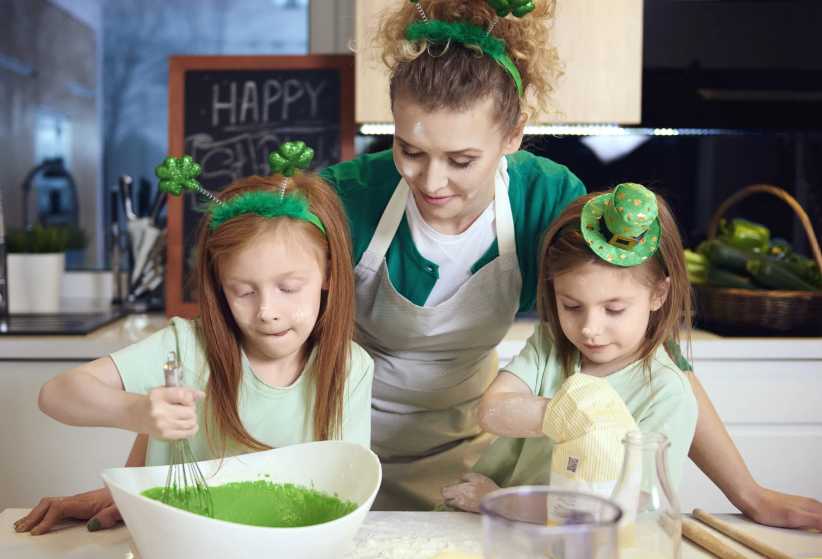Switch to skinny lattes. Learn to love nonfat cheese. No more butter! Sound familiar? If you’re trying to lose weight by cutting out all the fat in your diet, here’s food for thought: fat doesn’t make you fat. Excess calories do.
“It’s not total fat that matters. People need to be concerned about total calories,” explains Artemis P. Simopoulos, MD, president of The Center for Genetics, Nutrition, and Health in Washington, DC and co-author of “The Omega Plan.”
Another fat misconception? A no-fat or low-fat diet is the health gold standard. It isn’t. In fact, studies, such as the Women’s Health Initiative, which involved 49,000 women, showed that a low-fat diet didn’t significantly reduce the women’s risk of heart disease, breast cancer, or colon cancer.
And consider: some types of fat, such as unsaturated fat, which comes from plant sources and fish, are actually good for you. Studies show that by watching your total calorie intake and eating more foods rich in unsaturated fat, you may lose weight and reduce your risk of disease. Read on to learn about this diet concept that may change your mind about fat forever.
Fat is your friend
Like a car, your body needs oil to run. Among its many duties: fat is a major energy source and helps your body absorb certain nutrients. Fat also regulates your hormones, keeps your nervous system humming, and forms the membrane that surrounds each cell. It’s also the staff of life for your brain and is necessary for brain development. In fact, young children shouldn’t be offered low-fat foods.
“Until age 2, full-fat dairy products like whole milk, full-fat yogurt, and cheese rule,” says Sarah Krieger, RD, a spokesperson for the American Dietetic Association in St. Petersburg, Fla.
That’s because kids’ rapidly developing brains thrive on the saturated fat these foods contain. But go ahead and make the switch to low-fat foods such as skim milk after your child’s second birthday, when brain growth begins to subside. The rest of the family should stick to foods low in saturated fat, too.
Saturated fat — the fat found principally in meat, dairy products, and some tropical oils — has been shown to increase your risk of heart disease, because it raises the low-density lipoprotein (LDL), or “the bad” cholesterol, and triglyceride levels in your blood. The same holds true for another “bad fat” — trans fats — the man-made fat found in margarines and some manufactured foods, which also lower high-density lipoprotein (HDL), “the good,” protective cholesterol.
Help your heart
Unsaturated fat, on the other hand, the type of fat that comes mainly from vegetable, nut, and fish products, can help lower LDLs and blood pressure, raise HDLs, and prevent heart disease, stroke, and potentially deadly heart rhythm disorders. A little butter, ice cream, or a steak every once in a while is OK; everything in moderation.
But to keep your ticker in top shape, you can’t beat a diet rich in unsaturated “healthy” fats. One landmark study in particular, the Lyon Diet Heart Study, dramatically proved this point. In the study, 302 heart attack survivors were assigned to a low-fat “prudent” diet, consisting of 30 percent fat.
Another similar group was assigned to a slightly higher fat diet that was based on a modified version of the traditional diet of the Greek island of Crete; it featured unsaturated fats like olive and canola oil.
Although you’d think those on the lower-fat diet would have won this round, the opposite proved true. Subjects on the Crete diet had an unprecedented 76 percent lower risk of dying from cardiovascular disease or suffering heart failure, heart attack, or stroke.
Healthy fat
For overall good health and to lose weight, it’s important to eat less saturated fat and trans fats and to try to make sure the fat you do consume is unsaturated. Keep in mind that you have to consume fat to be healthy.
Up to 35 percent of your total daily calories can come from fat (that’s 700 fat calories on a typical 2,000-calorie daily diet), according to the National Academy of Sciences. Unsaturated fats such as omega-3 fatty acids, which are found in fish and fish oil, are essential fats. They’re required for normal body functions, and you must get them from food because your body can’t manufacture them.
“Omega-3 fatty acids have to be part of your diet continuously,” Simopoulos says. Moreover, if you don’t eat enough fat, your body will make its own. “Eating a very low-fat diet can turn your body into a fat-making machine, and the type of fat your body manufactures is saturated fat.”
Super food sources of omega-3s and other types of unsaturated fat include canola and olive oil, flaxseed, walnuts, and fish, particularly fatty fish, such as salmon, mackerel, herring, lake trout, sardines, and albacore tuna, because it’s packed with two types of omega-3 fatty acids: docosahexaenoic acid (DHA) and eicosapentaenoic acid (EPA), which your body readily uses. Plant sources of omega-3s like walnuts and flaxseed contain Alphalinolenic acid (ALA), which your body doesn’t use quite as efficiently. Nonetheless, as they say, it’s all good — for you and your family.
To reduce the risk of environmental contaminants, mix up the menu and serve different kinds of fish from varied sources, such as wild and farm-raised salmon, tilapia, and lake trout, at least twice a week. (Kids and women of childbearing age should avoid eating shark, swordfish, king Mackerel, or tile fish because these fish contain high levels of mercury.)
Fishing for serving ideas? Here are kid-friendly ways to work more healthy, unsaturated fats into your menus.
• Canola oil: Use it for sauteing vegetables and lean meat. For salad dressings, use half canola oil, half olive oil (for flavor).
• Ground flaxseed: Use a couple of tablespoons as a topper for salads; blend into a morning fruit smoothie or sprinkle atop cereal at breakfast.
• Albacore tuna: Stir into lunchtime pasta salads; serve on toast with sliced avocados, a squirt of lime juice, and a dash of salt, or fold into your favorite dinner time casseroles.
• Walnuts: Add chopped walnuts to baked goods like banana bread, sprinkle on pancakes, or serve with an afternoon snack of cheese and crackers.
• Sardines: Sneak them into pasta sauce.






















